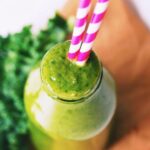How to Use Natural Fertilizers for Indoor Plants
Indoor plants bring life and vibrancy to our homes, but nurturing them can sometimes be a challenge. One of the most crucial aspects of plant care is providing the right nutrients for optimal growth. While chemical fertilizers are readily available, many plant enthusiasts are turning to natural alternatives. Natural fertilizers are not only environmentally friendly but also promote healthier plant growth without the risk of chemical build-up. Here’s how to effectively use natural fertilizers for your indoor plants.
Understanding Natural Fertilizers
Natural fertilizers derive from organic sources such as plant matter, animal waste, and minerals. Unlike synthetic fertilizers, which provide immediate nutrient availability, natural fertilizers release nutrients slowly. This slow release feeds plants over an extended period, reducing the risk of nutrient leaching or burning. Common natural fertilizers include compost, worm castings, fish emulsion, and bone meal. Each type offers unique benefits, making it essential to understand their properties before application.
Choosing the Right Fertilizer
Selecting the appropriate natural fertilizer depends on the specific needs of your plants. For example, if you’re growing flowering plants, bone meal is an excellent choice due to its high phosphorus content, which promotes blooming. On the other hand, nitrogen-rich fertilizers like fish emulsion are ideal for leafy greens and plants that require vigorous growth. If you’re unsure about the nutrient requirements of your plants, consider conducting a soil test or researching their specific needs.
Preparing Your Natural Fertilizer
Before applying natural fertilizers, it’s important to prepare them correctly. For compost, ensure it is well-aged and free from pathogens. You can make your own compost by recycling kitchen scraps, yard waste, and brown materials like cardboard. For worm castings, consider starting a worm bin, which allows you to produce nutrient-rich castings with minimal effort. Fish emulsion can be diluted with water, typically in a 1:5 ratio, to make it suitable for indoor use. Take care to avoid strong odors that may be unpleasant indoors.
Application Techniques
When applying natural fertilizers, timing and technique are key. Generally, fertilization should occur during the growing season, which is typically spring and summer for most indoor plants. However, some plants may require feeding year-round. For granular fertilizers like bone meal, sprinkle a small amount on the soil surface and gently mix it in. Liquid fertilizers, such as diluted fish emulsion, should be applied directly to the soil, avoiding the leaves to prevent burns.
Over-fertilization is a common mistake; therefore, it’s crucial to follow the recommended application rates. Start with smaller amounts and observe your plants’ responses before increasing the dosage. Keep an eye on your plants for signs of nutrient deficiency or excess, adjusting your fertilization routine as needed.
Monitoring Your Plants’ Health
After applying natural fertilizers, monitor your plants closely. Healthy indoor plants will display vibrant green leaves, strong stems, and an overall robust appearance. If you notice yellowing leaves, stunted growth, or wilting, it may indicate a nutrient deficiency or an overabundance of fertilizer. Adjust your fertilization routine based on these observations, and consider alternating between different types of natural fertilizers to provide a well-rounded nutrient profile.
Sustainable Practices for Long-Term Success
Incorporating natural fertilizers into your indoor plant care routine not only benefits your plants but also the environment. By choosing organic options, you contribute to sustainable gardening practices that reduce chemical runoff and promote biodiversity. Additionally, consider using recycled materials for pots, trays, and plant supports to minimize waste.
Experimenting with natural fertilizers can also be a fun and educational experience. Keep a journal of your fertilization practices, noting which fertilizers work best for specific plants and conditions. This will help you refine your approach over time, leading to healthier indoor plants and a more fulfilling gardening experience.
Nurturing Your Green Companions
Using natural fertilizers for indoor plants is an effective way to promote healthy growth while being kinder to the environment. By understanding your plants’ needs and carefully selecting and applying organic fertilizers, you can create a thriving indoor garden. Enjoy the process of nurturing your green companions, and watch as they flourish under your care.


